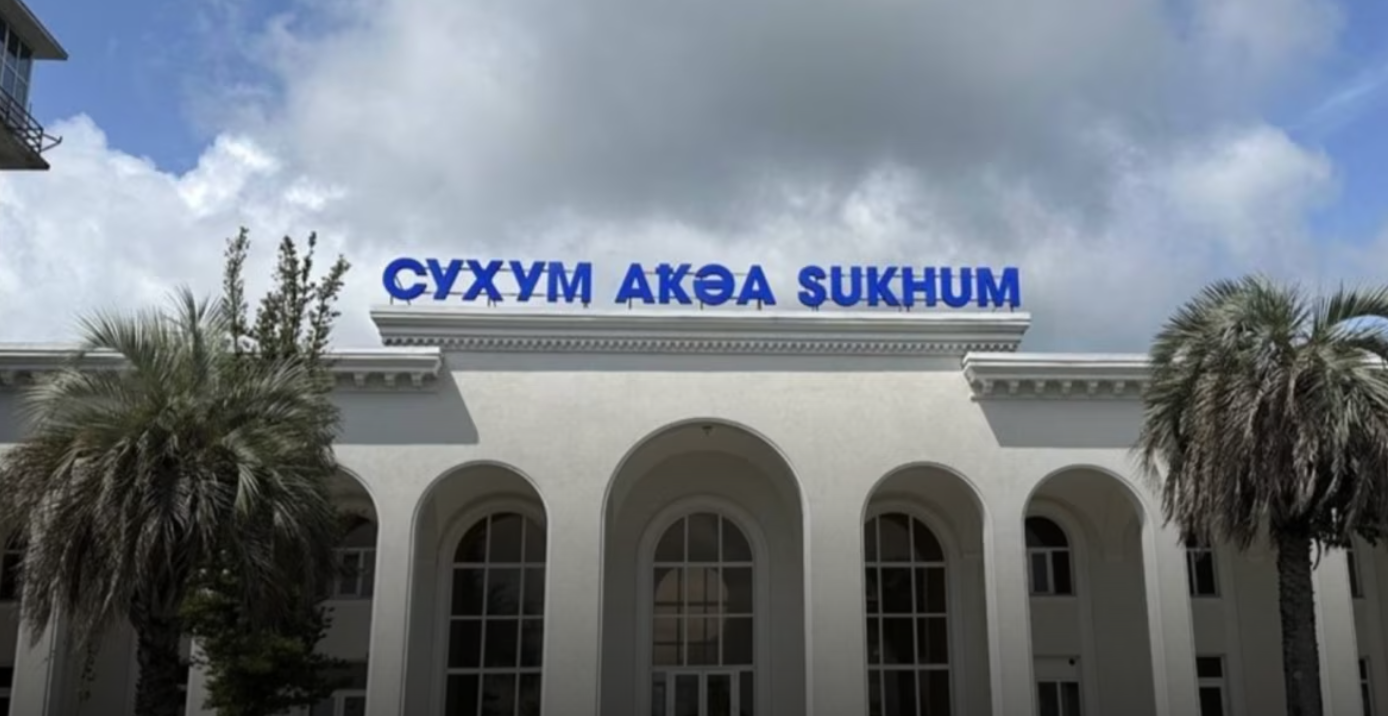საერთო ცხელი ხაზი +995 577 07 05 63


The Social Justice Center responds to the processes surrounding the expropriation of the Sukhumi airport and urges the Georgian government to take swift and effective action against the Russian annexation policy.
The Russian and Abkhaz parties signed an agreement on the restoration of the Sukhumi airport on June 16 in St. Petersburg. According to the Russian statement, the restoration of the Sukhumi airport is a crucial step towards enhancing Abkhazia's tourism and general economic climate. According to Maxim Reshetnikov, the Russian Minister of Economic Development, Sukhumi Airport will alleviate the traffic of both Sochi Airport and the Adler checkpoint, which is the primary route for Russian citizens to reach Abkhazia.
The agreement between the Russian and Abkhazian parties envisages for the 49-year lease of Sukhumi Babushera airport and its surrounding area, as well as encompassing buildings and structures, to the Russian investor; in addition to, a 25-year tax holiday. Furthermore, the investor will receive the airport's infrastructure and, if necessary, the surrounding areas and buildings. The estimated amount of investment equals to 6-10 billion rubles. In addition, the Abkhazian party is obliged to bring the airport's road infrastructure up to par and to provide the facilities with electricity by upgrading the substations at Agudzeri and Drandi.
The issue of handing over the Sukhumi airport prompted unrest and anxiety among the Abkhazean civil society. Abkhazian experts and political scientists believe that Abkhazia "needs an airport, but not at all costs"; they criticize the terms of the agreement, claiming that the agreement is skewed in favor of the investor, and completely ignors the Abkhazia's interests. According to the assessment of one of the Abkhaz veterans' union's representatives, this "slave contract" will deprive Abkhazia of the airport and its neighboring territory, and will detriment the financial independence of Abkhazian citizens.
In the context of the conflict in Ukraine and, consequently, the economic sanctions imposed on Russia, Russia accelerated the annexation processes in Abkhazia, as evidenced by the acquisition of Bichvinta country houses, the construction of mass residential apartments, and the renovation of Sukhumi airport. It is clear that Russia is attempting to aggressively exploit the strategic resources and infrastructure in Abkhazia in order to mitigate the effects of the sanctions and diversify its market. There is skepticism that the Sukhumi airport can serve as a viable alternative for transporting sanctioned cargo, thereby creating the so-called “black hole” for unregulated economic activities.
The Georgian government has not yet issued an official statement condemning the annexation processes carried out by Russia in Abkhazia and addressing the concerns and discontentment of Abkhazian society towards Russia's annexation policy.
Moreover, the Ministry of Foreign Affairs has not yet issued a statement condemning the transfer of Sukhumi Airport and the acceleration of Russia's annexation processes, nor has he drawn international attention to this issue, which was an integral part of this agency's policy until the last few years. In addition, according to the first vice-speaker of the parliament, Gia Volski, who is actively involved in policy issues related to conflict regions, there is no need for excessively provocative statements, nothing "devastating" is occurring, and the ongoing protest processes in Abkhazia do not require our support. Volsky asserts that simply observing the processes at this stage is sufficient.
Over the past two years, it has become apparent that the Georgian government has, on the one hand, practically abandoned the traditional political approaches aimed at condemning the annexation policy in the conflict regions with the active cooperation of the international community, and, on the other hand, has not created new alternatives and opportunities aimed at the transformation of the conflict that can respond to the fears, needs, and expectations of those affected.
It is our conviction that the Europeanization process can substantially contribute to the peaceful transformation of conflicts is reflected, among other ways, in the use of the European Union's unique peace experience, resources, and capabilities. Unfortunately, instead of actively attempting to raise concerns about the country's security and the transformation of conflicts in the context of EU expansion and international support mobilization, the Georgian government demonstrates complete passivity in this regard, and the negative rhetoric and problematic decisions directed at EU institutions and representatives harm the overall integration process with the EU. This evident inaction in the direction of conflicts raises further questions and concerns about Georgia's commitment to the European Union's foreign policy course.
In light of the aforementioned, we believe that the government needs to:
The website accessibility instruction